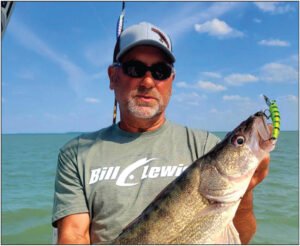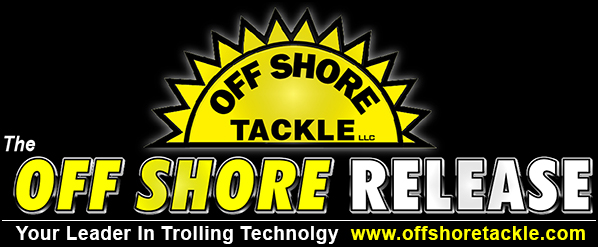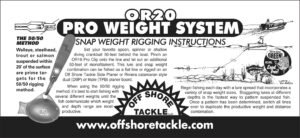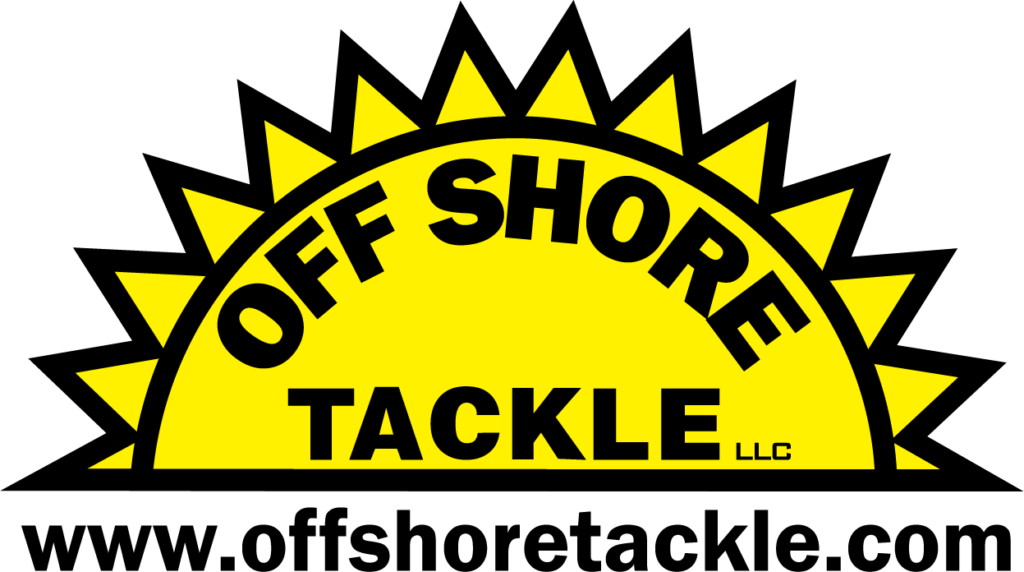BY CAPTAIN ERIC HIRZEL,
ERIE GOLD SPORTFISHING
When I hear the words “Fishing Networks” my first thought is television or streaming platforms such as World Fishing Network and Sportsman Channel just to name a couple. Each of these “networks” broadcast fishing related programming that is both entertaining and educational. Most of them teach us how to find success through techniques, locations, and timing of the best bites.
For tech minded anglers, the mention of “network” conjures thoughts of their boat electronics all linked together to expand the versatility and effectiveness of each individual function. In the same token, human idea sharing is commonly referred to as “networking”. It is quite common and valuable in the business world. When you think about it, wisdom, experience, skill, and intuition are tapped into prior to decision making in nearly everything we do. Politics, religion, education, vacations, buying, selling, and the list goes on. Our “people” create a network that we trust and rely on for our day to day lives.
THE ORIGINAL FISHING NETWORK

The same idea sharing applies with fishing. These highly effective and common “fishing networks” have been around since fishing was invented. Without a doubt, sharing information has resulted in more fish caught throughout history than all the innovative technology developments combined yet we rarely ponder it. Simple word-of-mouth idea sharing is timeless and so incredibly effective in improving the odds of a successful fishing trip.
Recently I had a bit of a revelation about how important all the people I know and talk to in the sport fishing industry are. I realized that my “fishing network” is as critical to me as my boat or a fish hook. I am a full-time charter captain on Lake Erie and not a day goes by that I am not tapping into my group to share information. There are a few elements many of us take for granted that are key to a productive fishing network.
TRUST
An effective fishing network relies on a couple key elements but the most important is trust. I am fortunate to have a talented group of friends who are fellow captains or anglers who I trust 100%. I trust their abilities, skill, experience, judgement and honesty. Just as importantly, I’m confident they all think the same of me.
TWO WAY COMMUNICATION
It is easy to get a solid heads up from someone and have a great day of fishing off their shared information. But we all have those days when we struggle for a variety of reasons. Often a call on the VHF radio or phone from a fellow charter captain saves the day for me and my customers. It is critical that your “people” must know they can trust you to do the same for them.
DON’T FORGET THE BAD STUFF
Obviously, the quickest path from struggling to catching fish is getting in the right place and putting out the right presentation. This often comes because someone from your fishing network shared that info with you. But regardless of where you fish, information about dreadful things like weather, water clarity, negative fish, etc. is essential information. Knowing where not to go saves time, fuel, and unproductive effort. The same applies to wrong speed, lure selection, or direction of trolling.
Bad weather or big wave conditions can certainly fall into the “bad” category. Letting your fellow anglers know what the current conditions are can help them decide if it is a good decision to head out or not. Crews can vary in age, physical condition, or experience so the making the call “to go” or “not to go” is not a one size fits all decision. In many situations, knowing the bad stuff is as valuable as info on a hot bite.
IT’S NOT ALWAYS ABOUT FISH
There are lots of variables in the fishing game that are collectively critical in finding and catching fish. There are also important things outside of the actual fishing that I rely on my network for. We often get into a pinch where we need information on parts, technical information, weather, business hours for fuel docks or bait shops, and tackle recommendations. A good fishing network to tap into that sort of experience can make finding answers to those needs simple.
FINDING FISH
As a charter captain I strive to make sure every group has a fun, productive, comfortable, and safe experience. It is simple on Lake Erie to stay on the fish if you are out every day. However, weather or schedules can sometimes put gaps in the days we get out, so it is very typical for all of us captains to work together to help decide where to head after a gap in fishing days. There are a few different ways we can help each other to find success.
SHORT TERM SEARCH
Obviously, giving my customers the best chance to catch quality fish is to get on top of a concentrated and active school in the right water conditions. When you fish big water for walleye like I do, those locations can change from day to day. Even a one day gap in the schedule can change the best locations to fish, especially if tough weather is in play. A great network of fellow captains and anglers helps to narrow down the search for active fish. It can be as simple as “how did it go yesterday?” if there are skippers who ran the day before.
More common with weather related gaps, the early morning phone calls, or chats with fellow captains in the marina can create a plan to cover different pieces of water to find a good bite. Several boats searching for different water and getting bites is communicated by VHF radio or cell phone to others in the group. This mutual effort can get the group onto a bite in a short amount of time.
LONG TERM INTEL
Knowing specific locations that produce year after year comes with experience. Lake Erie walleye can be predictable year in and year out because of their annual migration and spawning cycles. Many captains keep dated logbooks for weather conditions, bite information, catch rates, techniques, and presentations to help future decisions. Decades of collecting this information show how dependable those patterns are in all kinds of conditions. Old salts who have fished full seasons for decades have tons of that kind of information, so it is wise to listen to any advice they have to offer.
WE ARE ON FISH
When things come together and good water and fish are located, getting them to bite can be a challenge. In a trolling situation there are many variables that need to get tweaked daily to consistently put fish into the boat. Finding the right combination of speed and direction in concert with effective lure style, running depth and color, can take valuable time to figure out. Everybody in the fishing network wins when captains share the combination working for them over the VHF radio or cell phone. Again, experience tells us what programs have worked in the past for the time of year, water temperature, water clarity, and weather conditions. The shared network info helps everyone tweak their program and produce bites.
BIG OR SMALL
We all have our own fishing networks that are helpful to everyone in them. Some folks have a small circle of friends they share information and that is fine. In contrast, there are anglers that are blessed with a huge group of friends and colleagues that span across a large geographic area that help them find success no matter where they fish. Big or small, every effective network shares those elements of trust, reciprocation, wisdom, and friendship. I am fortunate to have a great fishing network to share information with no matter where I go fishing.
Editor’s Note: Captain Eric Hirzel operates Erie Gold Sportfishing out of Port Clinton, Ohio. Besides being a long time user of Off Shore Tackle products, Captain Eric is part of the trusted Fishing 411 TV network of anglers who have helped our crew get on fish countless times over the years. The results of these relationships are critically important to shooting interesting and informative television episodes. In turn, when these TV episodes broadcast, they help countless other walleye anglers to become more successful on Lake Erie. Captain Eric’s article Fishing Networks captures the very essence of what it takes to be consistently successful as an angler, regardless of the location or the target species.



